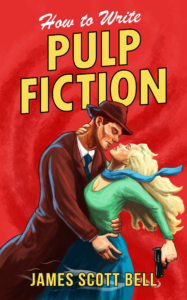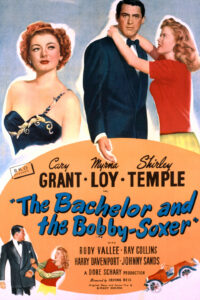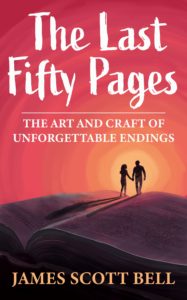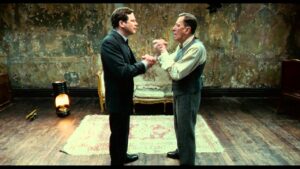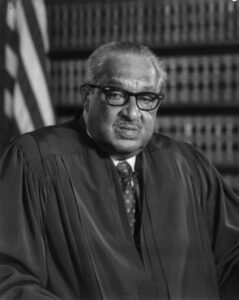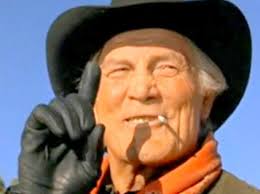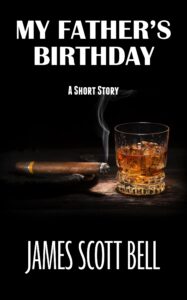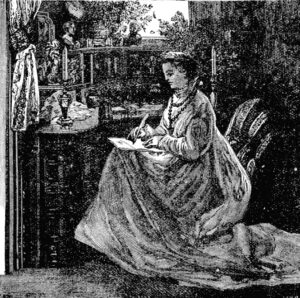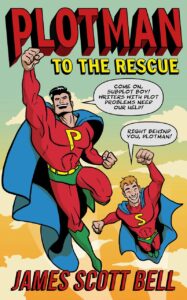by James Scott Bell
@jamesscottbell

Here is another first page for critique. It brings up a major issue that applies to all writers, but especially those writing fantasy and speculative fiction.
See you on the other side.
The Guide
Sam woke up in the middle of a field with a headache and a fuzzy memory of cold, rushing water. A thin black cat sat on the lowest branch of a large dead tree a few feet away. The cat hopped down from its perch, and disappeared behind the large trunk of the tree with a flick of its tail, as if to say, “Follow me, human.” After several minutes of walking, it turned around and stared. In an instant, the cat was gone and in its place, a man. “Make thy purpose known, mortal.”
Startled, Sam asked “Who are you?”
The man spoke, “I am Andrian, Guider of souls. Who might ye be, and from where do ye hail?”
“My… my name is Sam. I come from Oregon.”
“What bringst thee to my realm, ‘Sam’ of ‘Oregon’?”
“I… saw… a cat. I guess it wanted me to follow?”
“Ah, Cailleach.”
Once again, he was gone. In his place, the black cat from only moments ago. Just as quickly as he disappeared, he returned to his human form.
“Don’t– do that… It makes my headache worse…”
“My apologies. Be ye hungry?” There was something in his voice this time that sounded like….hopefulness? Curiosity? It was hard to tell. Nevertheless, Sam obliged. The man turned around, “Follow me.”
The man turned and began walking away. It was only after they reached an impassable wall of stone and being asked a direct question that he spoke again.
“How are we going to get past this cliff?”
“Do not worry. It is simply a cloaking spell I cast on my land, so that I may be hidden from view and protected in case something happens again.” He walked into the stone, and disappeared.
Sam asked, “What do you mean, ‘Something happening again’?”
He replied, “It is of no importance. Come, I shall give thee a meal.”
They crossed the barrier and Sam’s ears were filled with the sound of rushing water. Once through, the sound immediately stopped. Many different types of rare, colorful birds in all different sizes and colors sat perched on various branches. Andrian reached out, and a large white bird landed on his arm. The bird spoke, “Master has brought home a visitor?”
“Aye.”
***
JSB: Introductory note: I have a feeling the title here is for the chapter, not the book. If it is for the chapter, it’s fine. If for the book, please read my post on titles, for you can do much better.
A few months ago I wrote about the most important question you can ask about a scene. It is, Would they really? Is this how the characters would really act and speak under the specific conditions of that scene?
This is the overarching criticism I have of today’s piece. The result is that the reader, rather than being pulled into a unique story world, is kept at arm’s length. We don’t experience the scene along with the main character; we watch from afar. And Sam’s lack of reaction, resistance, wonder, fear, trembling or anything beyond “startled” runs afoul of the would they really? test. We get the feeling the characters are game pieces on a plot board being moved by the author, not living, breathing people making the moves themselves.
I want real characters here because I like this set-up—waking up in an alternate world. Yes, it’s been done, many times before, in fantasy and even, in a way, in noir (guy wakes up with amnesia). But that doesn’t mean a writer can’t tackle it afresh and put his unique stamp on it. Also a situation isn’t a cliché for a new reader (I’m assuming YA audience here).
So go for it.
But let’s make the “it” better.
Sam woke up in the middle of a field with a headache and a fuzzy memory of cold, rushing water.
Instead of starting us off in Sam’s head, allowing us to vicariously experience this most mind blowing of circumstances, the line merely tells us what’s happening. We need to be feeling, along with Sam, his groping toward consciousness. The only way to do that is to climb inside Sam’s head and lock the exit. Within his cranium is where you must set up your entire command post for the duration of your novel.
Firmly ensconced therein, you can only look through his eyes and think his thoughts. Since he’s just waking up he wouldn’t know that he is “in the middle of a field.” He has to find that out. Start by giving us his first sensations of waking. What does he see? What does he smell? (Smell is especially promising here. Wet dirt? Grass? Dung? Give us something!)
Weave in his pounding head and the memory of cold, rushing water (I like that last bit, as it dangles a mystery).
A thin black cat sat on the lowest branch of a large dead tree a few feet away.
Don’t just toss this in! Give it to us in real time, with vivid description and strategic revelation. What do I mean by the latter? My strategy would be to start with the tree and end with the cat, like a slow pan in a movie.
Describe the tree. Don’t just tell us it’s dead. Give us the gnarls and knots, the sharp witch fingers of the empty branches.
And when he finally gets to the cat, don’t let it just sit there. Make it ready to pounce and, more important, have it staring right at Sam! That’ll send a nice chill up the ol’ spine. We need more description of this kind, grounding us firmly in the reality of this unreal world. Channel your inner Stephen King. (Read, for example, the first page of The Gunslinger and you’ll see what I mean.)
The cat hopped down from its perch, and disappeared behind the large trunk of the tree with a flick of its tail, as if to say, “Follow me, human.” After several minutes of walking, it turned around and stared. In an instant, the cat was gone and in its place, a man. “Make thy purpose known, mortal.”
Okay, I’m lost. If the cat disappeared behind the trunk, where does the “several minutes of walking” come from? It took me a couple of readings to figure out that Sam is following the cat. But you don’t have that in there! So it seems like the cat walks away, or around the tree (?) but is still near Sam. You need a beat of Sam following. This is a perfect place to stretch some tension and give us more description of the world.
And how does the cat get “gone”? Does it just vanish? (Later, you imply that the cat and “the man” are the same, just different forms. A more liquid transformation would be the better choice.)
Next, you have the appearance of the “man.” And that’s all you give us, save for the Monty Pythonesque speech pattern. What the heck does he look like? His clothes, his coloring, his adornments? We desperately need these.
BTW, don’t take the Monty Python reference as a dig. You obviously want this scene (and, I’m assuming, the novel) to have some humor. That’s fine, but the humor needs to come out of the “reality.” If you don’t make us believe what Sam is experiencing, the humor will fall flat.
The late Danny Simon (Neil’s older brother, who taught both Neil and Woody Allen how to write narrative comedy) talked about knowing your “bubble.” He meant your story world. He said, “You must know ‘the world’ — physical and every other way — that you’re going to write about. That will suggest possibilities. You must ‘see’ all the characters in the scene, all the physical stuff, too. Each action of the characters is going to cause a re-action among other characters or the environment.” (And if you’re going to write with humor, you would do well to study the only known copy of notes from Danny Simon’s famous comedy-writing class.)
Startled, Sam asked “Who are you?”
Startled? I should say so! But I don’t tell the reader. Show it! Does Sam scramble backward? Lose his breath? Think he’s going crazy? Can he even speak?
The man spoke, “I am Andrian, Guider of souls.
We don’t need The man spoke. That’s obvious. Give us an action beat or description. He raised his arms or His eyes burned.
“My… my name is Sam. I come from Oregon.”
“What bringst thee to my realm, ‘Sam’ of ‘Oregon’?”
Okay, the fun begins. I’d lose the internal quote marks, though. That will confuse your intended audience, and isn’t needed. If you want to imply hesitation, he could say something like “Sam of O-Re-Gone?”
“My apologies. Be ye hungry?” There was something in his voice this time that sounded like….hopefulness? Curiosity? It was hard to tell. Nevertheless, Sam obliged.
Obliged is a wrong word choice. Sam obliged implies action, but there is no action, nor even a call to action. He was simply asked a question. So have Sam answer or nod.
The man turned around, “Follow me.”
The man turned and began walking away.
That’s one turn too many. It would mean the man is walking away, only backwards. Remember, visualize every single beat through Sam’s eyes. Easy fix: just lose one of the turns.
It was only after they reached an impassable wall of stone
Whoa! That was fast. They get to a “wall of stone” in a nanosecond of fiction time. I mean, there is pace, and then there’s warp speed (which, you’ll recall from Star Trek, blurs everything).
Don’t skip what we need to see and experience. It won’t hurt your pace if, again, you’re stretching the tension. Stretch it! What is Sam feeling as he follows? In fact, why is he following in the first place? There’s no hesitation or doubt. Would he really (not have any)?
And man, we need to see this “wall of stone.” How would Sam describe it? What would he notice? How would it make him feel?
and being asked a direct question that he spoke again.
You make it clear in the next line that it is Sam speaking. It’s his voice. But that means you don’t need to tell us he’s about to speak again in the previous line. Let the action do the work. The words he spoke again are superfluous.
“How are we going to get past this cliff?”
I don’t know what I’m supposed to see. A wall is not a cliff. A cliff has no wall. Ack!
They crossed the barrier
What barrier? It’s gone. And you don’t cross a barrier anyway. You cross a chasm. You scale or go around a barrier.
Many different types of rare, colorful birds in all different sizes and colors sat perched on various branches.
Another great opportunity for description! Let us see these birds as Sam does! Reds and yellows and oranges and purples! And unless Sam is an ornithologist he’s not seeing “rare.” He’s seeing other-worldly. How would Sam react to that?
Whew. Okay, I’ve been tough on you, writer, because you have a situation that would make me want to turn the page…IF I was fully invested in Sam and IF I could SEE this world. So please do this for me: climb inside Sam’s head and don’t come out until you’ve done a complete re-write of this opening scene. And I mean complete. Forget what you’ve written and start with a blank page. Go step-by-vivid-step. Take your time.
Weave us a dream!
Comments are welcome.





